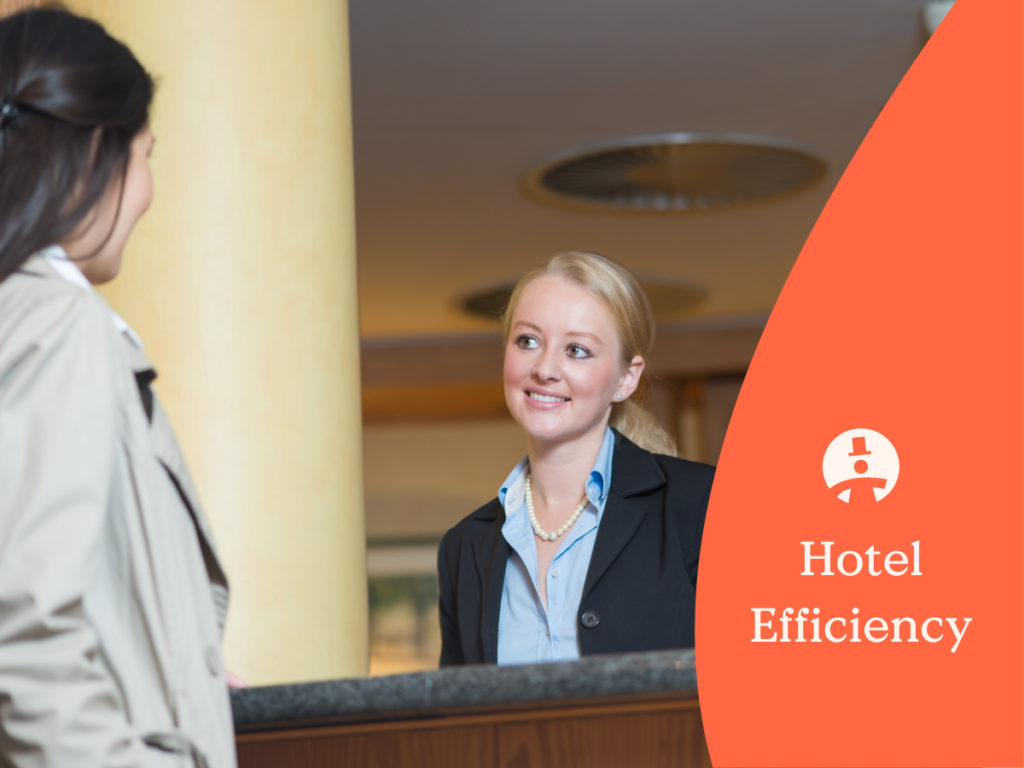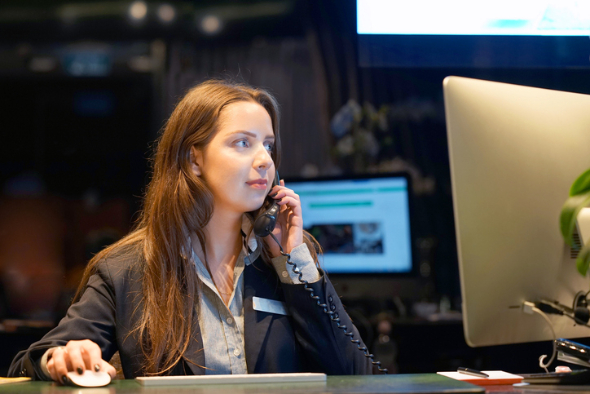What is hotel efficiency?
Hotel efficiency is the concept of doing more with less, to minimise costs and maximise profit in your hotel business.
This hotel efficiency definition is perhaps a little too basic though, so let’s dig a little deeper into the question “what is efficiency in a hotel?”
Efficient hotels use systems and procedures to streamline operations. They train staff to work better, and they implement technology to take care of low value and laborious work so the team can focus on higher value activities like enhancing the guest experience.
These businesses also use hotel efficiency metrics to track their progress to ensure they’re trending in the right direction.
This blog will take you through some of the key ways to measure and improve efficiency at your property.
Dial up your hotel’s efficiency and earn more revenue.
Ready to save valuable minutes on every booking you take? As a property management system built specifically for small properties, that’s exactly what Little Hotelier can deliver.
Learn moreWhy is efficiency important in hospitality?
As with any other business, running a hotel is a numbers game. The goal is to maximise revenue while minimising costs.
Unlike other businesses, many independent accommodation providers have somewhat of a revenue ceiling. You only have a certain number of rooms, so once you’re fully booked, revenue generation opportunities become limited. At this point the focus must turn to reducing costs if you want to make more money.
That’s where hotel operational efficiency comes in.
Creating an efficient hotel is simply good business. When you have lower operating costs, you can more comfortably offer more competitive rates, winning business and growing your market share.
Key hotel efficiency metrics to help measure performance
Looking to increase your hotel’s efficiency? A few key hotel efficiency metrics that you should be tracking include:
- Average daily rate: ADR is the average revenue earned per occupied room per day. Maximising ADR helps a hotel increase revenue without needing to increase occupancy.
- Average occupancy rate: The percentage of available rooms that are occupied over a given period of time. A higher occupancy rate indicates better utilisation of available rooms – a sign that you are marketing and operating efficiently.
- Gross operating profit: GOP is the total revenue generated by your hotel, minus operating expenses. Improving gross operating profit means that you’re increasing revenue while controlling costs.

How to improve your hotel operational efficiency
One way of looking at this is to reduce inefficiencies. Here are a couple of common hotel inefficiencies, and how to improve them.
Simplify front office operations
Many independent hotels stick faithfully to old, inefficient and often analogue systems and processes, simply because it’s what they know. But modern tech can seriously simplify operations by automating manual processes.
A channel manager, for example, can connect with all of your OTAs and booking channels, and can block dates across all your listings as soon as a new reservation comes in. A direct booking engine, meanwhile, lets guests book their own rooms through your website, so you don’t have to spend endless hours taking phone calls from guests trying to reserve rooms.
Enhance housekeeping efficiency
Cleaning efficiency is critical in a hotel given housekeepers will often only have a few hours in the middle of the day to work within. The right technology can enhance your housekeeping operations, by allowing cleaners to see exactly who is checking out when, and helping to schedule cleaners to turn those rooms over in the most efficient way possible.
Streamline food and beverage operations
If you offer room service, or if you have an on-site restaurant or bar, consider allowing your guests to order their food through an app. This sends the order directly to the bar or kitchen, with no need for an intermediary. This also means that your team doesn’t have the opportunity to make mistakes – it’s up to the guest to get their order right.
Boost energy efficiency
Beyond operational efficiency, your hotel would also be wise to enhance its energy efficiency, to make the business better for your wallet and the planet. Ways to boost your energy efficiency include:
- Installing LED/energy-efficient lighting
- Implementing a solar and battery power system
- Using smart HVAC systems that can be centrally controlled
- Using sensors to turn lights and climate control on when guests are around
- Upgrading to energy-efficient appliances
- Improving the insulation of your building
- Encouraging guests to reduce, reuse and recycle wherever possible
- Training staff on energy-saving policies and practices.
Leveraging technology for hotel efficiency
How do you run a hotel effectively? As mentioned above, the most compelling answer lies in the implementation of technology. While it might feel a little daunting to independent hoteliers who haven’t dealt much in digital, the results driven by smart tools can be absolutely incredible.
Choosing a smart property management system can see you slash admin and human error. You can use smart automations to optimise room rates, take bookings and update room availability across every listing. You can communicate with your guests seamlessly from your phone, and even let them check themselves in.
You just need the right software.
By Dean Elphick
Dean is the Senior Content Marketing Specialist of Little Hotelier, the all-in-one software solution purpose-built to make the lives of small accommodation providers easier. Dean has made writing and creating content his passion for the entirety of his professional life, which includes more than six years at Little Hotelier. Through content, Dean aims to provide education, inspiration, assistance, and, ultimately, value for small accommodation businesses looking to improve the way they run their operations (and live their life).
Table of contents
“It's so easy to use! Little Hotelier pulls all the info into one place and I can access it from anywhere. Brilliant really, very helpful support staff too.”
Owner, French Bay House









Mick Comerford,
General Manager
The Mercantile Hotel